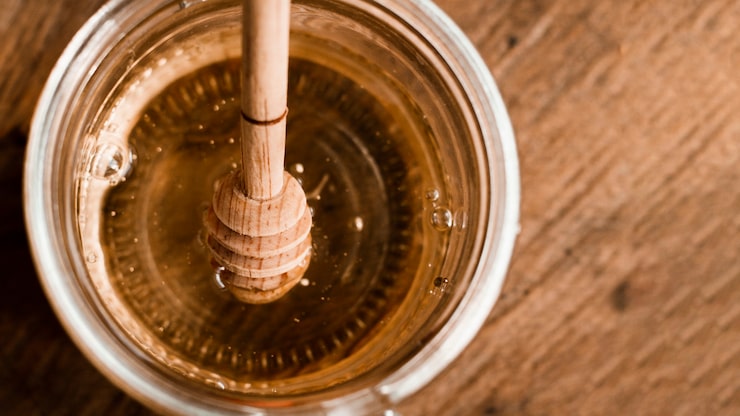Bee propolis may support fertility for both men and women. Research suggests it can improve sperm quality, reduce inflammation, and help balance hormones—especially if you’re dealing with PCOS or endometriosis. Here’s a clear look at what studies show and how propolis might help on your fertility journey.
Disclaimer: This post contains affiliate links, which means I may earn a small commission if you buy a product after clicking a link. This doesn’t cost you anything. As an Amazon Associate I earn from qualifying purchases.

How does bee propolis help fertility?
Propolis is rich in antioxidants and other helpful compounds. For fertility, its main benefits are cutting inflammation and protecting reproductive cells from oxidative damage—the kind of harm caused by free radicals that can affect sperm and hormones. It also helps balance hormones, which matters if your fertility issues are related to PCOS or hormone imbalances. Some studies even suggest it can support ovarian health and improve sperm motility. In short, propolis can help create a healthier environment for conception.
Bee propolis for male fertility: What the research says
Male infertility often links to poor sperm motility, frequently caused by oxidative stress (an imbalance between free radicals and the body’s defenses). In a randomized controlled trial, men with low sperm movement who took 1500 mg of propolis daily for 10 weeks saw increases in sperm count and motility, along with reduced inflammation and oxidative stress. Animal studies show similar effects—rats exposed to copper had better sperm quality, higher antioxidant levels, and healthier testicular tissue after propolis. A 2023 review also found propolis can protect the testes, support testosterone, and improve semen quality in several cases. If oxidative damage is a factor, propolis may offer useful support for sperm health.
What about female fertility?
Propolis may help women, especially when fertility struggles involve inflammation or hormone imbalances. In one small study, women with mild endometriosis who took 500 mg of propolis twice daily for nine months had a 60% pregnancy rate versus 20% in the placebo group, with no reported side effects. For PCOS, a clinical trial found that taking 500 mg daily for 12 weeks lowered testosterone and improved insulin sensitivity—both important for ovulation and fertility. Animal studies from 2023 also show fewer cystic follicles and better ovarian structure with propolis. These findings suggest propolis could be helpful for women with hormone-related fertility issues.
Bee propolis dosage for fertility: How much to take?
Most human studies use 500 to 1500 mg of propolis per day. Men in one trial took 1500 mg daily for 10 weeks and saw improved sperm quality. Women in studies often used 500 mg daily (either once or split into two doses) and experienced better hormone balance and higher pregnancy rates. These amounts are generally well tolerated. To be safe, start at a lower dose around 500 mg and talk to your healthcare provider before increasing. Always pick a high-quality supplement with clear labeling.
When should you take it for best results?
Take propolis daily for at least 8 to 12 weeks—this is the window most studies used. There’s no strict time of day to take it; the key is consistency. If you’re trying to conceive, start a couple of months before or discuss adding it during fertility treatment with your doctor. Propolis works gradually, so give it time.
Bee propolis or royal jelly—which is better for fertility?
Both can help, but in different ways. Propolis is useful for reducing inflammation, balancing hormones, and supporting sperm health—making it helpful for conditions like PCOS and endometriosis. Royal jelly is more focused on egg quality and overall reproductive function, thanks to its nutrients and natural hormones. Some people use both: propolis for protection and hormone balance, royal jelly for reproductive support.
Is bee propolis good for conception and infertility?
Yes—propolis may help, especially when issues stem from hormone imbalance or poor sperm quality. Studies show better pregnancy rates in some women and improved semen measures in men. It’s not a cure-all, but it may improve your chances depending on the underlying cause.
The bottom line
Bee propolis looks promising as a natural way to support fertility for both men and women, with studies showing benefits and few reported side effects. If you’re considering it, choose a reputable supplement and talk to your doctor to make sure it’s right for you.